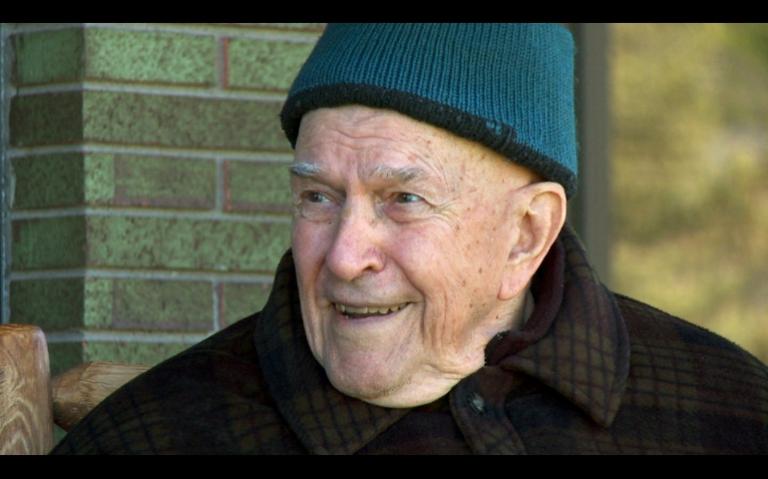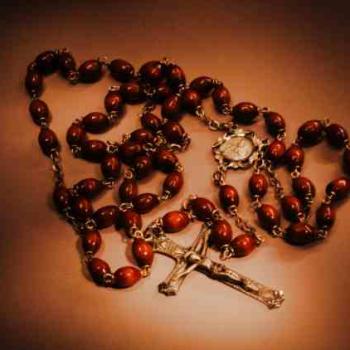
“Thomas Keating: a Rising Tide of Silence” gently documents the life of Fr. Thomas Keating, integrating his personal history and spiritual journey in a compelling blend of interviews with him and his Cistercian brothers, footage of Keating’s talks at interreligious gatherings, interaction with people who come on retreat, and in one case, his visits to Jens Soering, a prisoner serving life for double murder. Over time, Keating’s “centering prayer” method influenced Soering to live his life as a prisoner in a fruitful way, completely changing him, says Keating.
Keating, a Trappist priest, was born into a prosperous New York family in 1922. His mother was a Bible Christian and his lawyer father a non-practicing Catholic. This did not stop the young Keating from getting up early as a child and sneaking off to mass. During his first year at Yale, Keating began seeking answers to life’s meaning and eventually entered the Trappist monastery in Valley Falls, R.I., in 1944. When the monastery burned down the community moved to Spencer, Mass. Keating was appointed superior of the Trappist community at St. Benedict’s Monastery in Snowmass, Colo., in 1961 and elected abbot of St. Joseph’s Abbey in Spencer in 1961.
After serving as abbot for 20 years, Keating resigned in 1981 and returned to Snowmass. Keating is best known as one of the three “architects” of the contemporary prayer method — “centering prayer” — along with William Meniger and M. Basil Pennington. He is also one of the most prominent leaders in interreligious dialogue recognized and respected by religious leaders world over. But his journey to the pinnacle of understanding silence as the language of God’s infinite love that can unite all people was not easy for him or his community. His first 10 years as the abbot of St. Joseph’s is characterized as demanding of himself and the community. He then underwent a transformation from “asceticism to contemplation” that eventually divided the community, hence his resignation.
The film is framed with many of Keating’s sayings, such as “The spiritual journey does not require CLICK HERE to continue reading on my blog at the National Catholic Reporter












